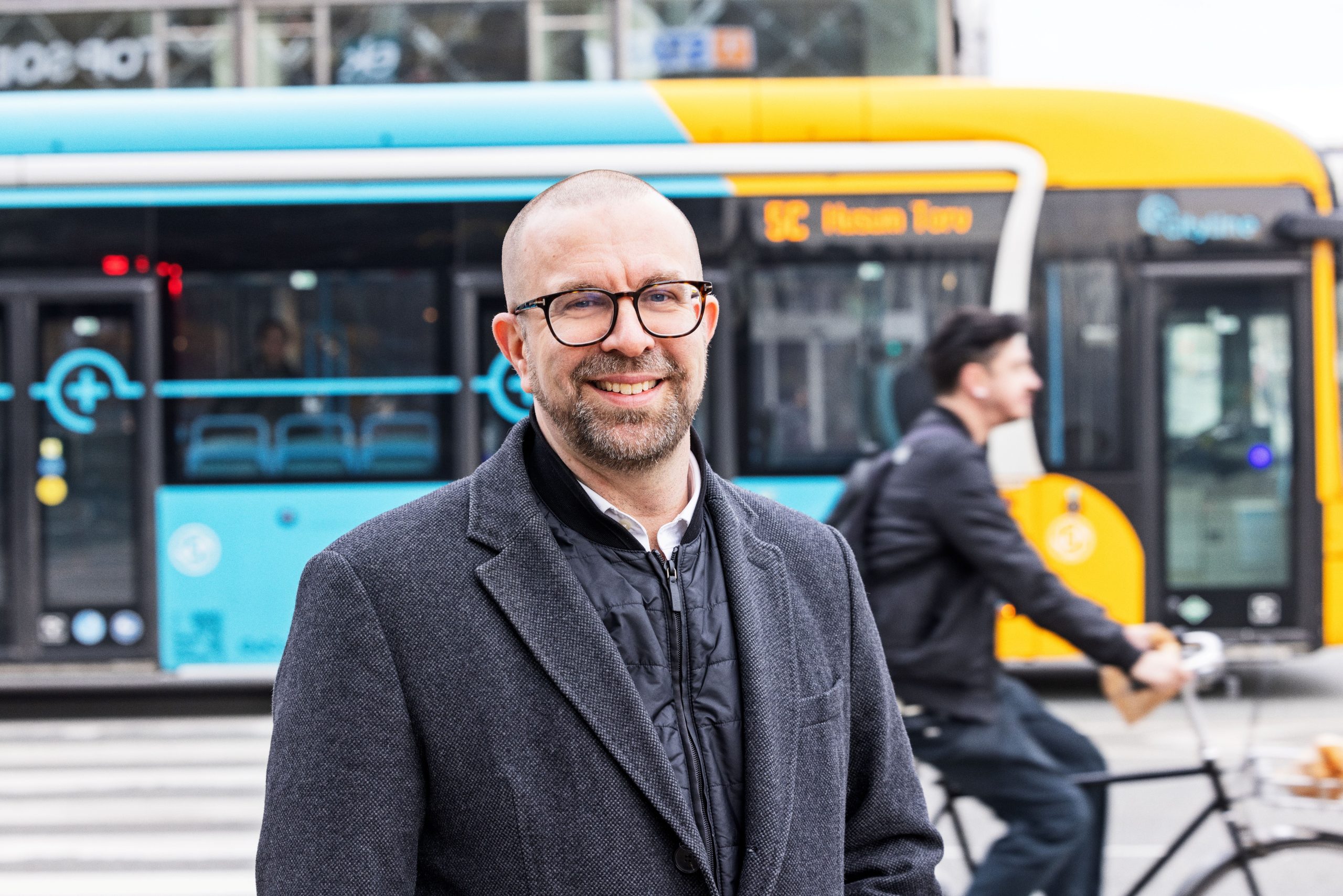In Norway, SAS has entered into an agreement with the state for evacuations with a converted Airbus aircraft that can be turned into a flying hospital at short notice. The Danish state and Danish transport companies should also have these types of agreements in place for transport in the event of serious crises – before new disasters occur.
That is the recommendation of DI Transport, part of the Confederation of Danish Industry, which represents major transport companies such as SAS, Maersk, Copenhagen Malmö Port, Billund Airport, DSB and large freight operators.
“Our transport companies have considerable capacities and skills that can be mobilised during a crisis. If we make use of those capacities, we can quickly get up to speed,” says Hakon Iversen, branch director at DI Transport.
DI Transport wants to strengthen public-private cooperation on transport preparedness. A closer and more structured collaboration between the state and the transport companies would allow aircraft and airports, trains, buses, trucks, cargo ships and ports to play a central role in Denmark’s emergency preparedness, believes DI Transport.
Some of the things the transport sector could contribute include:
- Evacuation and mobility using public transport when other transport has been incapacitated.
- Stations that can be turned into health centres or shelters.
- Road freight transport can clear up after major weather events, keep supply lines open and deliver emergency aid.
- Airlines and airports can link different parts of the country, secure emergency supplies, help with evacuation, ambulance services and military operations.
- Shipping, ports and port operators can secure alternative links between parts of the country in cases of bridge or tunnel closures, secure emergency supplies, support global supply chains during a crisis and assist in military operations.
Preparedness proposal
DI Transport has therefore drawn up a preparedness proposal containing four recommendations for closer cooperation between the state and businesses:
- Knowledge of threats and vulnerabilities
- Resilient transport infrastructure
- Including private transport capacity in preparedness planning
- Formalising cooperation on transport preparedness
DI Transport will discuss the proposal with transport politicians in the Danish parliament.
The Falck emergency services company, which offers roadside assistance, patient transport and healthcare services, has also launched an initiative aimed at involving more businesses in public emergency preparedness.
Falck has invited businesses to become part of “Business Preparedness” – a new model for emergency preparedness which integrates private companies into Denmark’s overall emergency preparedness through voluntary participation and flexibility.

“Unlike traditional, centralised approaches, such as those we know from Finland, this model gives businesses the freedom to decide how they want to contribute themselves.
This secures motivated engagement and utilises the resources and expertise of the business sector in a way that complements public emergency preparedness,” writes Falck about “Business preparedness”.
Falck underlines that this complements public preparedness and is in line with the authorities’ recommendations.
Be alert when travelling
Companies must also have their own internal preparedness, including contingency plans covering crises like flooding, energy shortages, supply chain disruptions and cyber-attacks.
The Confederation of Danish Industries DI urges its member companies to identify vulnerabilities and risks, including that of cyber-attacks – one of the greatest threats to companies’ ability to operate, according to DI.
DI offers a range of guidelines for companies to help them ensure that their employees remain particularly vigilant while on business trips:
- Be aware of your surroundings and avoid leaving devices unattended during travel.
- Make sure software has the latest security upgrades when you are travelling.
- Maintain secure access to the company network.
- Be sceptical of unknown links or requests for private information – also while travelling.
- You should know how to react in an emergency during travel and who to contact.
A new government ministry and new legislation
Prime Minister Mette Frederiksen (Social Democrats) told a parliamentary debate on emergency preparedness that she expects many more cyber-attacks, hybrid attacks and potential attacks on critical infrastructure in the coming years.
She also said she hoped the political parties would “perhaps together be able to give greater priority to this area” during the 2026 budget negotiations, “because preparedness costs a lot of money and it is therefore important that parliament also engages in the strengthening of emergency preparedness”.

Denmark has already significantly stepped up its focus on preparedness.
The country has established a new Ministry for Civil Protection and Emergency Preparedness, and new Danish laws came into force on 1 July this year that impose stricter requirements on crisis preparedness for both companies and public authorities.
The Minister for Civil Protection and Emergency Preparedness, Torsten Schack Pedersen, told parliament when the legislation was passed:
“It is absolutely essential that we strengthen both digital and physical security. With the new rules, we increase the resilience of Danish companies and public authorities.”





